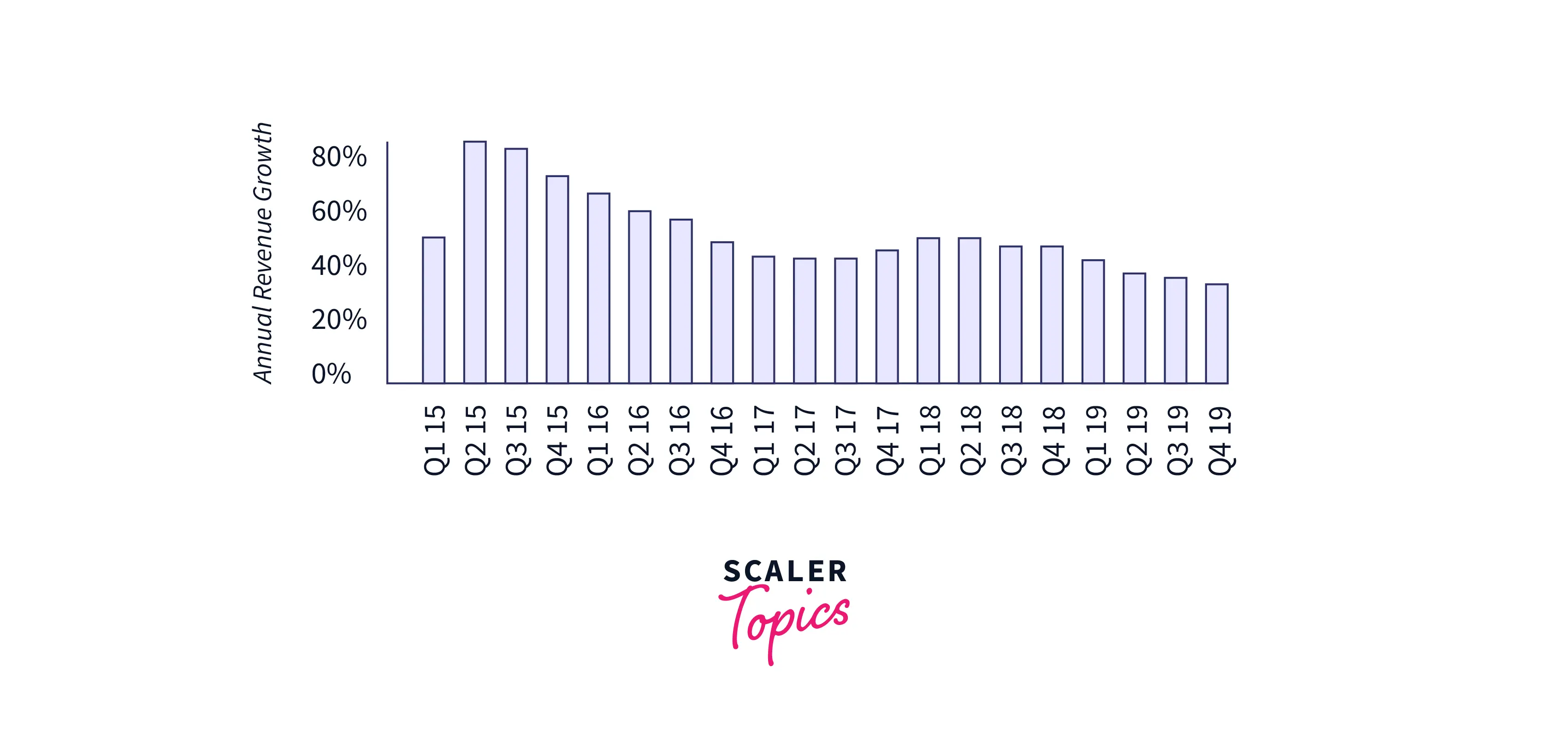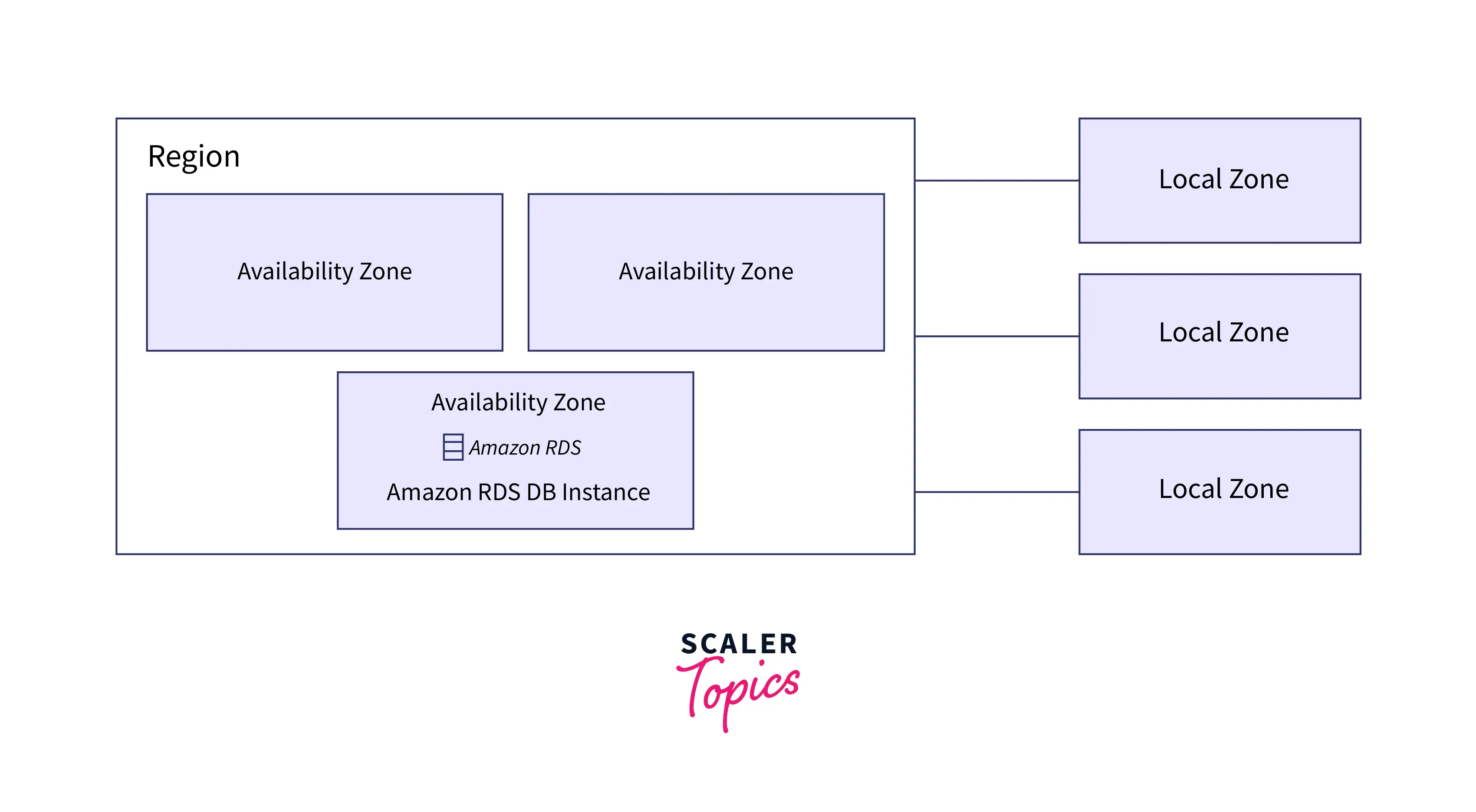What is AWS?
Overview
Amazon Web Services is one of the leading cloud service providers on the internet. There are around 200+ services that AWS provides and these services can be used to perform various tasks concerning computing, storage, migration, networking, etc. All of this can be simply achieved in ones own workspace at a very minimal cost while ignoring the hidden complexities of the system.
Introduction to AWS
AWS is a cloud service provider that provides almost 200 + services ranging from storage, database, compute, networking, security, migration, IoT, development tools, AI, and ML. Not only does AWS provide a huge number of services, but it also provides the best management and security in class.
History
- 2002- World came to know what is AWS.
- 2006- Some AWS products were launched.
- 2012- The first customer event was held and AWS launched some of its new products.
- 2015- AWS revealed its revenue, that was close to $6 billion.
- 2016- Exceeded the $9 billion revenue target.
- 2016- Snowball,snowmobile, and AI services released and other AWS basic concepts.
- 2019- Provides almost 100+ cloud services and increment in revenue by 34 percent.
- 2022- Currently provides 200+ cloud services.

How AWS works?
AWS provides its services globally in all six continents by distributing them into 26 regions and 84 availability zones. Availability zones are physical geographical locations where AWS data centers are located. Clients use the services ofAWSby just connecting to the internet, and can access any application of AWS by paying the cost for that particular service. The client is usually an end-user of AWS services and can choose the resources they want. The client can also decide on how things are executed on the servers or data centers of AWS. All they have to do is ,connect to the internet and through the AWS console, they can create a virtual environment and access servers, databases, storage etc.

Applications of AWS
1. Storage
AWS offers a variety of storage services, including options for data backup, archiving, and recovery of data. Some of them are: AWS S3, Amazon Glacier, Amazon EBS(Elastic Block Store), AWS Storage Gateway
2. Cloud Compute
Cloud computing is renting out virtual computer servers that users can run on their personal computers and access those services to host their applications. Services includes EC2(Elastic Compute Cloud), Lightsail, AWS Lambda, EKS (Elastic Container Service for Kubernetes), Elastic Beanstalk.
3. Database
AWS provides users with database services ranging from simple NoSQL databases to relational and other complex databases, which are easily scalable, highly secure, and cost-effective. Services includes Amazon RDS, Amazon DynamoDB, Amazon ElastiCache, Neptune, and Amazon RedShift.
4.Networking
AWS provides a highly secure, scalable, and dynamic cloud computing platform connecting user's private workspaces to the virtual network at high speeds.Services included are Route53, VPC(Virtual Private Cloud), Amazon API Gateway, AWS CloudFront and AWS AppMesh.
5.Security
The security of a user's information is one of the most critical factors in the cloud computing service. Hence, AWS provides a range of services for data or information security. Some of them are: IAM (Identity and Access Management), KMS (Key Management Services), Cloud Directory, WAF (Web Application Firewall).
6.Management Tools
AWS provides various tools for proper utilization and to keep a check on the services that solve the problem of choosing innovation faster and maintaining cost, compliance, and security. Services included are CloudWatch, CloudFormation, CloudTrail, OpsWorks, AWS Auto Scaling, Amazon Glacier, Amazon EBS(Elastic Block Store), and AWS Storage Gateway.
Companies Using AWS
Top 10 users:
- Netflix
- Twitch
- Turner Broadcasting
- BBC
- Baidu
- ESPN
- Adobe
Other known Indian brands: Ola, Hotstar, Tata Motors, Tata Sky, Practo, Hike, RedBus, Bombay Stock Exchange, UTV, Rediff, HT Media, Lupin Pharmaceuticals, Big Bazaar, Ferns n Petals, Macmillan Publishers India, Myntra, Snapdeal, Koovs, Voonik, Shopper's Stop, Paytm, Pepperfry, and many more can be added to the list.
Customers of AWS range from large tech companies like Netflix and Facebook to new start-ups like Myntra, Snapdeal, and Paytm.
Advantages of AWS
- AWS users pay for the compute power, storage, and other resources, there are no long-term contracts or upfront commitments because any technology is verified for availability and cost-effectiveness.
- The cost of cloud is lesser as compared to having one's own servers and data centers.
- Users in India can access the availability zones of other locations such as the United States. Therefore, resources are accessible from any location.
- The most significant advantage of any technology is its user community, and AWS has millions of active users.
- Amazon's brand value is added to AWS because Amazon is the largest e-commerce company, ensuring AWS's reliability and security.
- Users can make use of services according to their requirement. Auto-scaling and load balancing facility increases AWS services scalability and performance.
Disadvantages of AWS
-
AWS sets default limits on resources which vary from region to region. These resources consist of images, volumes, and snapshots. You can launch the limited number of instance per area.
-
There are some techniques that have not been hosted on AWS which can be critical for some businesses. For example, AWS SES (Simple Email Service) does not have the feature of sending multiple emails simultaneously, which may be a requirement for some teleporting technology.
-
Businesses must invest in skilled AWS cloud technology talent, which is not always feasible.
-
For immediate and intensive support, extra payments have to be made to AWS.
-
Hardware, downtime, restricted control, backup protection, privacy, and security are general cloud computing service difficulties. Still, these can be trusted on significant technologies such as AWS, Azure, or GCP.
Acquisitions
Every company makes acquisitions for rapid growth in a short interval of time, the same as has been done by AWS by spending almost $564 million over seven acquisitions and 25 investments. Some of the notable acquisitions by AWS are:
| Company Name | Year |
|---|---|
| Elemental Technoolgy | 2006, Portland |
| NICE | 2007, Asti |
| OpenSCG | 2009, Hyderabad |
| TSO Logic | 2010, Vancouver |
| App Thwack | 2012, Portland |
| CloudEndure | 2013, Tel Aviv |
| Data Row | 2017, San Francisco |
Conclusion
- In this article we discussed what AWS is, its scope, its history of AWS, its working, AWS applications in detail, companies using AWS, advantages, disadvantages, and all acquisitions by AWS.
- Compared to other cloud service providers, "AWS" offers more services and features ranging from infrastructure technologies like computing, storage, and databases to emerging technologies like machine learning, artificial intelligence, data lakes, analytics, and the Internet of Things.
